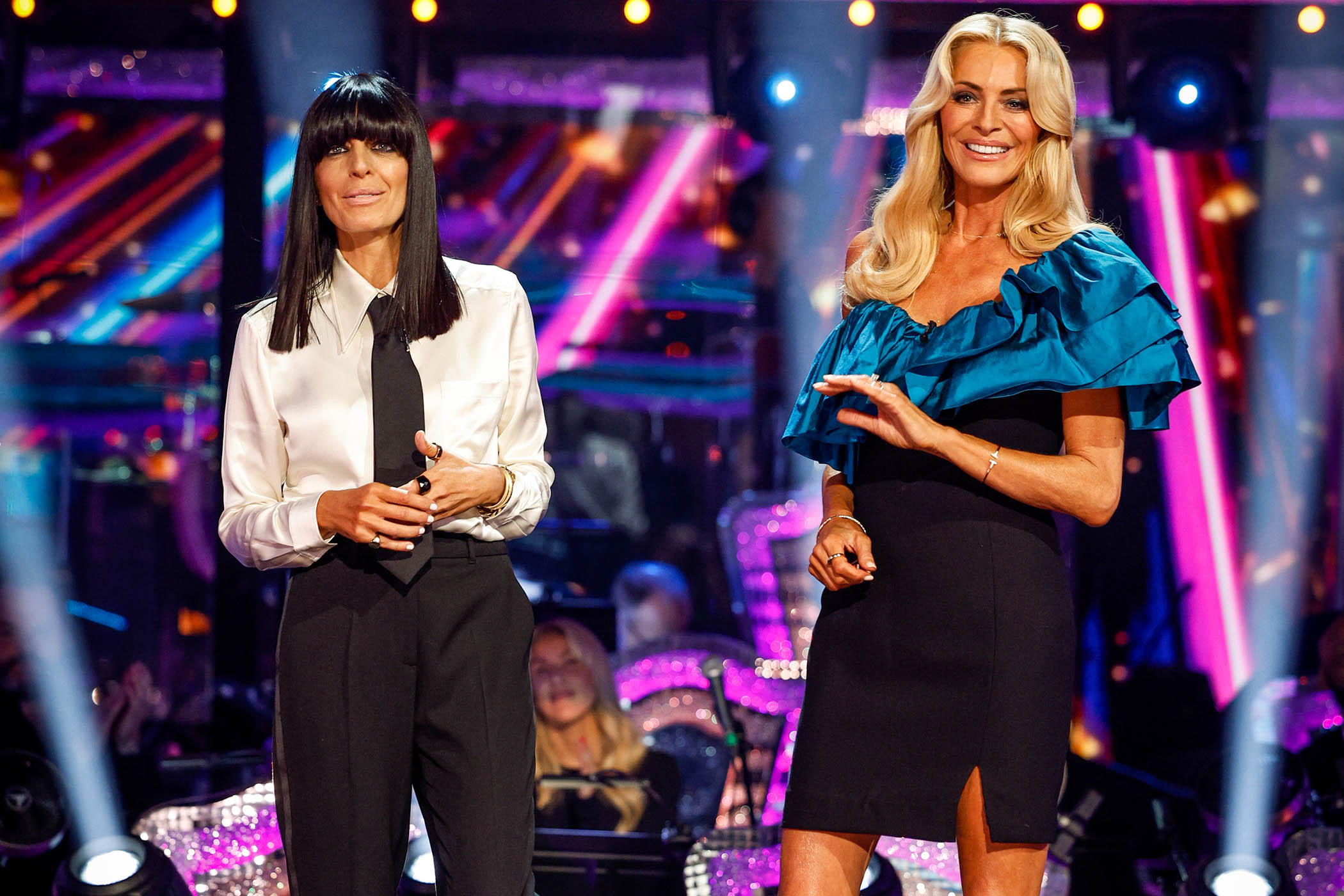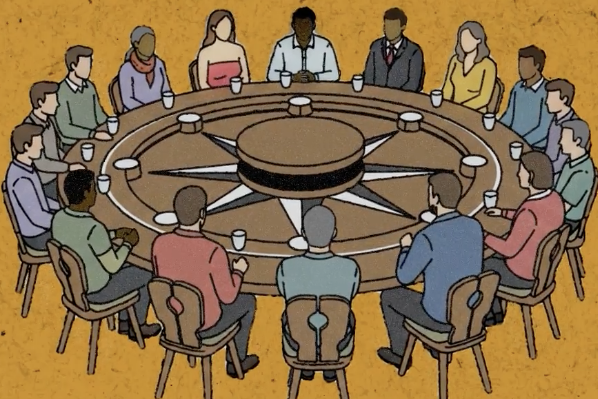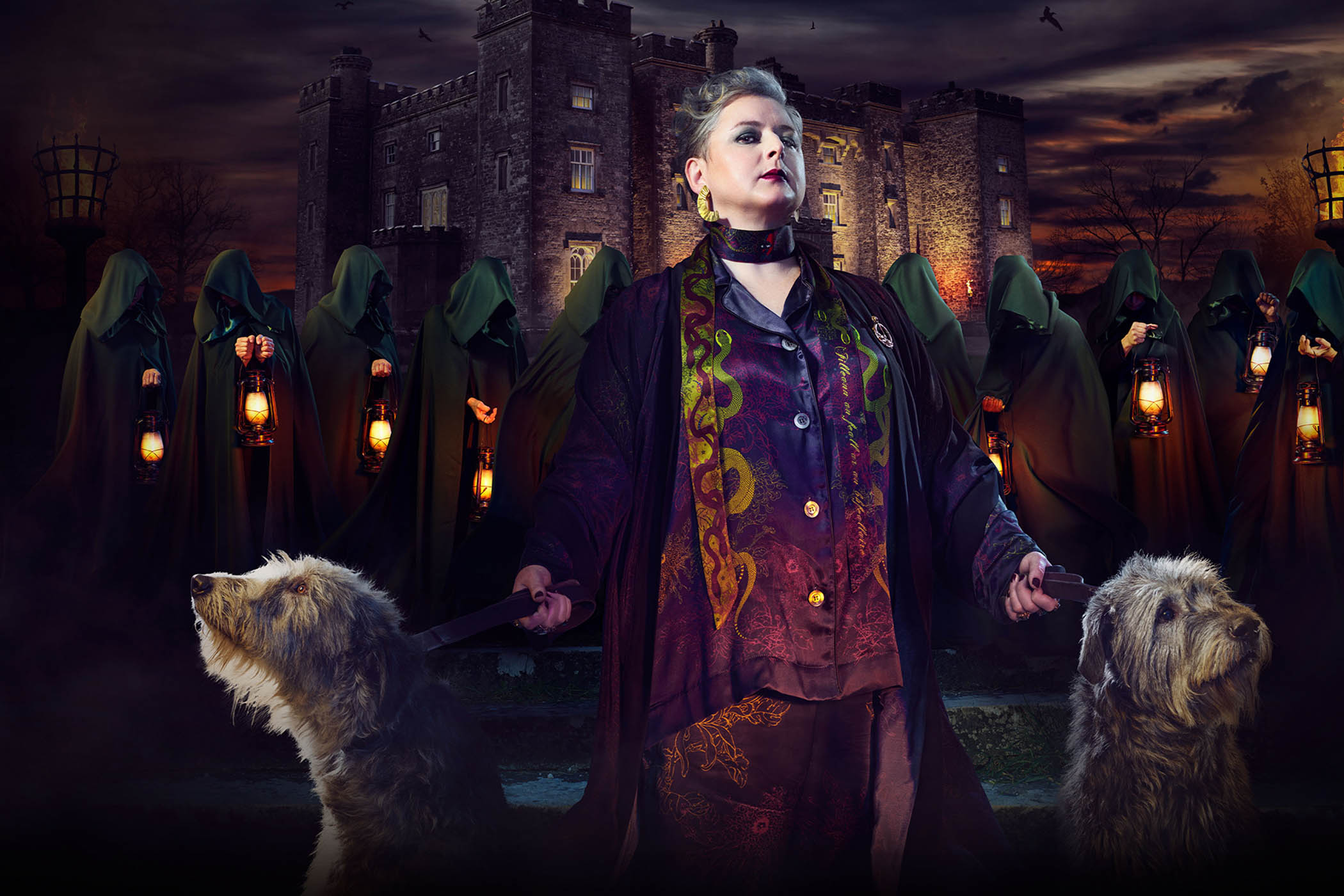Claudia Winkleman and Tess Daly’s announcement that they are to leave Strictly Come Dancing – handing over the “sparkly baton” at the end of the current 23rd run – was a light entertainment atom bomb.
The pair, both reputed to be paid £150,000 for a season, present the BBC1 primetime show now slipping in ratings, down from an average of nearly 8.6 million viewers for the opening episode five years ago to just over 5 million this year.
Still, they remain the reigning queens of Saturday night TV. Which makes this not so much a departure as a showbiz abdication. Now questions rain down like the tinsel of a Strictly final. Who will take over? Zoe Ball? Bill Bailey? Rylan Clark? And what does it mean? Not just for these presenters, but for presenting duos per se, and the crumbling concept of “Saturday night TV”.
Light entertainment shows look frothy and ephemeral but are built on hard grind and thrive on familiarity. With this in mind, Daly, 56, and Winkleman, 53, appear to have dropped the fabled “Strictly family” right in it. To paraphrase Oscar Wilde: to lose one presenter may be regarded as a misfortune, to lose two is a brand-disaster. As a Strictly fan, that’s certainly what flickered through my brain as I watched their nervy – but doubtless carefully orchestrated – joint video statement (rumoured to have been filmed some time ago).
The huge success of The Traitors/Celebrity Traitors means Winkleman’s star is blazing.Scotching reports of the BBC being blindsided by the Strictly announcement, news is now emerging of Winkleman getting her own high-end primetime BBC chat show – having already showcased her blend of insight, humour and cheek while filling in on The Graham Norton Show in February (the producers of the Norton show are also behind the new show and plan to run both).
Daly has been presenting Strictly since it began in 2004, initially with the late Bruce Forsyth. Winkleman became permanent co-host in 2014 but had already worked on the results edition and the companion show, Strictly Come Dancing: It Takes Two. For both women, could simply be that they’ve reached their limit as glitterball lifers.
Then there are the cyclical Strictly scandals, including allegations of bullying. More recent upsets have involved reports of stimulant abuse. Is worse to come, making the oddly timed, mid-series announcement an exercise in PR crisis-management?
It is further speculated that Strictly could be “rested” or axed. Certainly, the “Saturday night TV” model – weekend family viewing – is beyond retro, verging on prehistoric. Some juggernauts, such as ITV’s The X Factor, have been shuffled out of the schedules. What does “light entertainment” mean in these days of social media, streaming, podcasts and YouTube? Even the concept of the presenting duo in all its daytime/nighttime manifestations has at times looked tired, tatty, outmoded – still dominated by the indefatigable Ant and Dec, and morning TV’s ersatz sofa “husband/wife” duos (from Anne and Nick to Holly and Phil to Cat and Ben). But maybe this is where Daly and Winkleman came in.
Related articles:
Their ensuing success constituted not only a long-overdue format refreshing but also a revolution
Their ensuing success constituted not only a long-overdue format refreshing but also a revolution
It’s all but forgotten now, but they initially sparked strong chauvinist opposition. A female presenting duo, without an authoritative male presence – what spangled blasphemy was this? Their ensuing success constituted not only a long-overdue format refreshing but also a revolution. Their only female antecedents were The Great British Bake Off’s Mel and Sue, who were by that time already a comedy duo. More recently, there’s the incoming MasterChef female presenting duo, food critic Grace Dent and chef Anna Haugh. Not exactly a primetime deluge of female talent, but still a start.
Who knows what’s next for the departing handmaidens of the glitterball. For all their talk of “tracksuit bottoms at home while holding some pizza” in the video statement, one rather doubts it.
Newsletters
Choose the newsletters you want to receive
View more
For information about how The Observer protects your data, read our Privacy Policy
For their part, Daly and Winkleman can be proud that they put in their shift with style: no falling into tabloid bear traps (disputes; territoriality; cat-fights); leaning delightedly into their bonkers-mismatch (ironic Barbie-glamour-puss and gothic-princess); and remaining friends. It says something that the queens of Saturday night television left decisively together, as a mutually supportive quasi-feminist unit. Powerful. And in their own way, still dancing.
Photograph Guy Levy/BBC



